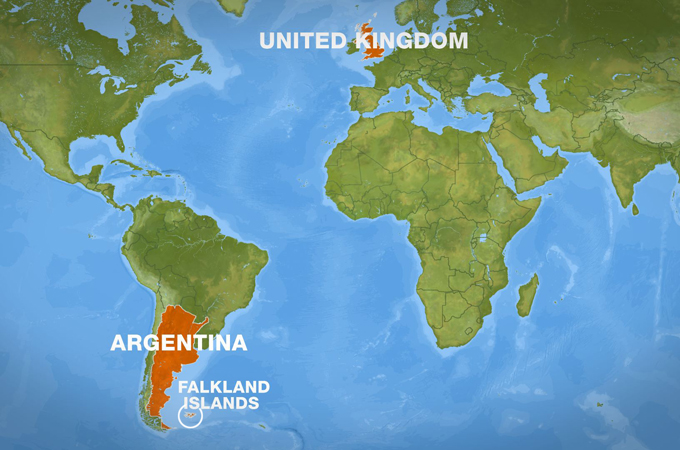UNASUR rejects Falklands oil exploration
Grouping of South American nations reject British oil exploration in the disputed Falkland Islands.

 |
South American nations have rejected British oil exploration in the disputed Falkland Islands, as tensions between the United Kingdom and Argentina escalate before the 30th anniversary of their war over the archipelago.
Argentina said earlier this week it would take legal action against any companies involved in oil exploration off the islands, known as the Islas Malvinas in South America, as part of a drive to pressure Britain into sovereignty talks.
Keep reading
list of 4 itemsThe everyday items you never knew contained plastic
‘Don’t be afraid for the marshes’: The battle to save Iraq’s waterways
Why has the flooding in Kenya been so devastating?
Britain has vowed to defend the remote island cluster, saying it will negotiate sovereignty or oil rights only in the unlikely event that the 3,000 islanders request it.
“The military presence of the United Kingdom and Northern Ireland in the Islas Malvinas … goes against the region’s
policy to seek a peaceful solution to the sovereignty dispute, and [the region] reiterates its rejection of that presence,” the foreign ministers of the UNASUR grouping of South American nations said in a joint statement on Saturday.
“It also rejects unilateral British activities in the disputed zone, which include, among other things, the exploration and exploitation of renewable and non-renewable Argentine natural resources as well as military exercises.”
The islands have been controlled by Britain since 1833 but are claimed by Argentina. In 1982, following Argentina’s invasion of the islands, the two-month-long Falklands War between the two countries resulted in the withdrawal of Argentine forces.
The self-governing British Occupied Territory passes its own laws, sets its own taxes and will collect any oil royalties for its own treasury.
The dispute between Britain and Argentina has ratcheted up in recent months after findings by British exploration firms.
Argentina says the exploration and drilling activities are illegal since the area is contested. It says Britain is violating Argentine law and UN resolutions that call for talks and prohibit unilateral action as long as the dispute persists.